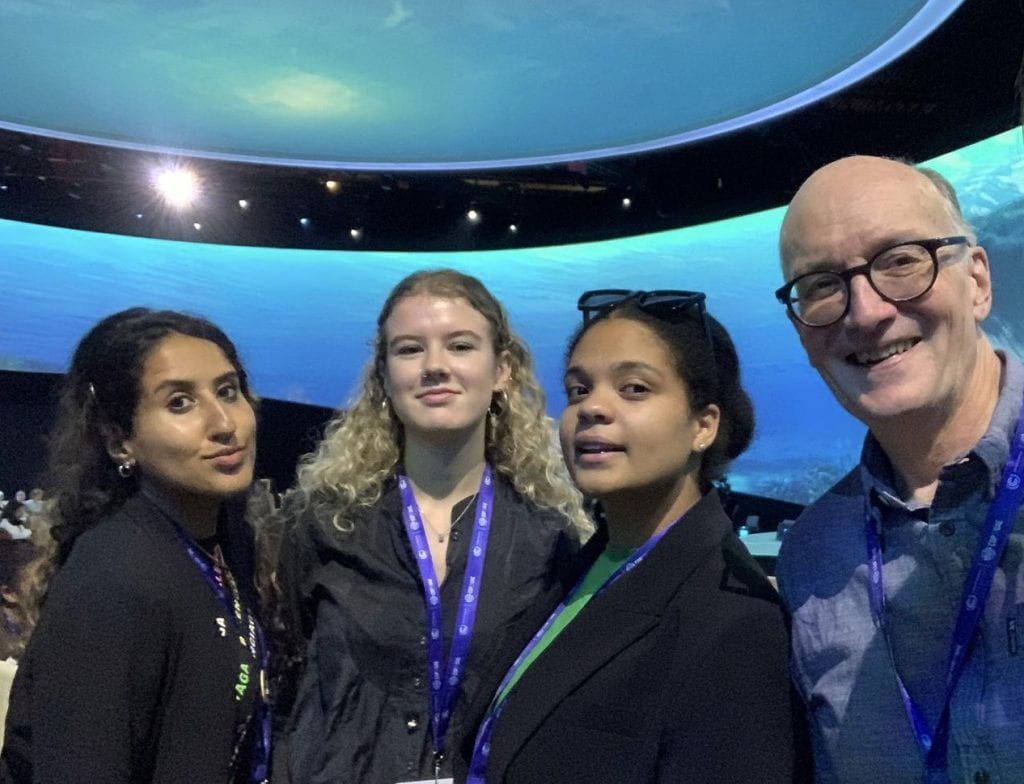Cop28: we need more accountability in adaptation
By Susannah Fisher, on 8 December 2023

After early progress on the loss and damage fund and announcements on energy and health from COP 28 in Dubai, attention in the corridors in week 2 is turning to adapting to the impacts of climate change. One of the major topics of negotiation is the global goal on adaptation. Members of the Accountable Adaptation team at IRDR are following these discussions to understand the politics behind measuring adaptation.
What is the global goal on adaptation?
The global goal on adaptation was established in the Paris Agreement in 2015 and seeks to create a global political commitment to action on adaptation on par with mitigation. The goal seeks to “enhance adaptive capacity, strengthen resilience and reduce vulnerability to climate change in the context of the temperature goal of the Agreement”. Progress has been slow since 2015, but work started in earnest after the Glasgow COP in 2021.
Since Glasgow negotiators and observers have been meeting every few months in a series of workshops to push the idea forward and consider what it means to create a global goal for adaptation. These workshops have covered issues such as transformational adaptation, indigenous knowledge and links with other global frameworks but only in recent months have steps forward been made on a concrete framework for the goal.
Why do we need a goal?
Progress on adaptation action has been very slow and largely incremental. This means governments, communities and the private sector have been making small changes and tweaks to existing activities, policies and programmes to adapt. For example growing a new crop, building an irrigation system or putting sandbags around a house close to water. As the impacts of climate change are becoming clearer, in many cases we know this will not be enough. We will need to make more systemic, more transformative choices to adapt and live well with the scale of the climate impacts anticipated.
Adaptation has not received the same political attention as mitigation, and if we are to make progress on these challenges, this needs to change. There also hasn’t been enough money invested in adaptation and the international community has not fulfilled its promise to deliver $40-50 billion a year for adaptation. The latest UNEP Adaptation Gap report shows that only $21 billion was delivered in 2021, and the needs for adaptation are 10-18 times higher than the amount of public finance available.
Why is it so hard?
There are many challenges to measuring adaptation – outcomes and priorities depend on local contexts and it touches all sectors. Data is limited. In many cases we don’t really know what effective adaptation looks like. This could be different in a 1.5 degree world, 2 or the 3 we are heading for without more ambitious action. To design a global framework has therefore been full of political and technical challenges.
What has happened in the negotiations in Dubai?
Negotiations have been going on all week on the global goal on adaptation but little progress has been made. According to the Earth Negotiations Bulletin one observer called them “dire: and negotiators fear what will happen if the goal “crashes and burns”.
In the negotiating room, governments have been debating what role finance should play in the text on the global goal, what thematic areas should be included, what indicators are relevant, and if work should continue beyond this COP. There has been no agreement so far.
Does any of this really matter?
The global goal matters as it will set the level of ambition and the framing for what adaptation success looks like. It is a key tool for accountability allowing the COP to check if the international community is on track with planning, implementation, and finance to address the impacts of climate change, and to change course if it is not.
As part of our research at IRDR, we are analysing how governments and others understand the role of measurement and how adaptation measurement shapes action. These conversations on the global goal can often get lost in finding the best way to measure this complexity, but metrics embody a set of values and an understanding of success. Measurement can be used to raise ambition, build inclusion, and frame what solutions look like. It is inherently a social and political process.
As the doors to Expo City open today, we wait to see how the goal will move forward.
Dr Susannah Fisher is UKRI Future Leaders Principal Research Fellow. She works across research, policy and practice on adapting to climate change with an interest in ensuring climate finance supports effective and equitable adaptation, and that adaptation is at the scale and ambition we need for the escalating impacts of climate change.
 Close
Close



